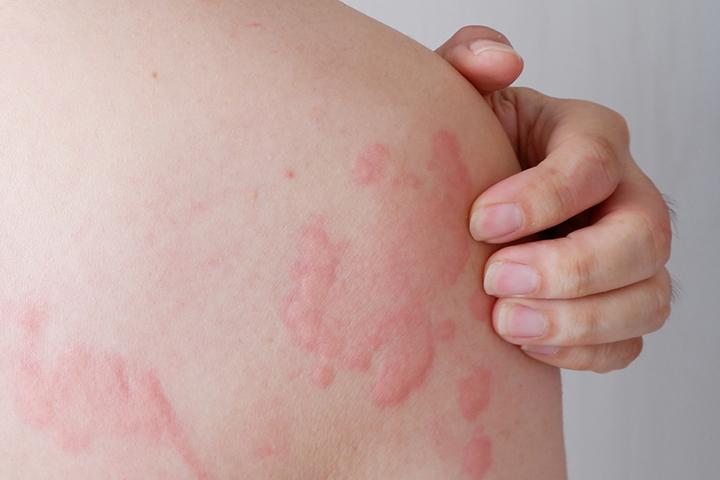Hives, also known as urticaria, can be an uncomfortable and bothersome skin condition characterized by raised, itchy welts. While hives are often temporary and harmless, they can cause significant discomfort and distress. Access Health Care Physicians, LLC understands the importance of providing individuals with information about natural remedies that can help alleviate the symptoms of hives. In this article, we explore various natural remedies that may provide relief from hives and promote overall skin health.
Cold Compress:
Applying a cold compress to the affected area can help reduce inflammation, soothe itching, and provide temporary relief from hives. Wrap ice cubes in a thin cloth or use a cold pack and apply it to the affected skin for 10 to 15 minutes at a time. Repeat as needed throughout the day.
Oatmeal Bath:
Taking an oatmeal bath can help soothe irritated skin and relieve itching caused by hives. Add colloidal oatmeal (finely ground oats) to a lukewarm bath and soak in it for 15 to 20 minutes. Pat your skin dry gently after the bath.
Aloe Vera Gel:
Aloe vera has soothing and anti-inflammatory properties that can help calm irritated skin and reduce itching. Apply pure aloe vera gel directly to the hives and leave it on for 15 to 20 minutes before rinsing it off. Repeat several times a day as needed.
Baking Soda:
Baking soda has a drying effect on the skin and can help relieve itching associated with hives. Mix baking soda with a small amount of water to create a paste and apply it to the affected area. Leave it on for 10 to 15 minutes before rinsing it off with cool water.
Witch Hazel:
Witch hazel is a natural astringent that can help reduce itching and inflammation caused by hives. Soak a cotton ball in witch hazel and gently apply it to the affected skin. Leave it on for a few minutes before rinsing it off. Repeat several times a day.
Calendula:
Calendula, also known as marigold, has anti-inflammatory properties and can provide relief from hives. Apply calendula cream or ointment to the affected area several times a day. Ensure that you are not allergic to marigold before using calendula products.
Chamomile Tea:
Chamomile tea has soothing and anti-inflammatory properties that can help reduce itching and calm the skin. Brew chamomile tea, allow it to cool, and then apply it to the hives using a clean cloth or cotton balls. Alternatively, soak a cloth in the cooled tea and apply it directly to the affected skin.
Avoid Triggers:
Identifying and avoiding triggers that may be causing the hives is essential. Common triggers include certain foods, medications, insect bites, pollen, and stress. Keeping a diary to track potential triggers can help identify patterns and allow for better management of hives.
Manage Stress:
Stress can exacerbate hives or trigger flare-ups. Engaging in stress management techniques such as deep breathing, meditation, yoga, or engaging in hobbies can help reduce stress levels and minimize the impact on hives.
Maintain Healthy Skin:
Taking care of your skin is crucial in managing hives. Avoid harsh soaps, fragrances, and tight-fitting clothing that may irritate the skin. Opt for gentle cleansers, moisturize regularly, and protect your skin from excessive sun exposure.
Conclusion:
While hives can be uncomfortable, incorporating natural remedies into your daily routine can provide relief from itching and discomfort. Access Health Care Physicians, LLC emphasizes the importance of maintaining overall skin health and managing triggers to prevent recurrent episodes of hives. However, if hives persist, worsen, or are accompanied by severe symptoms, it's important to seek medical attention for a proper diagnosis and treatment. Remember, natural remedies can complement medical advice but should not replace professional healthcare guidance.


